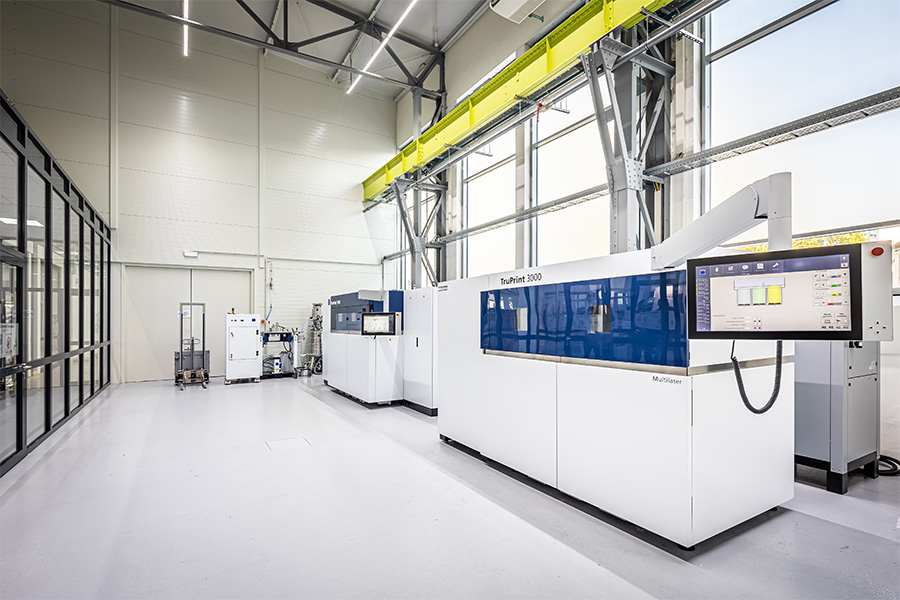The aerospace company Airbus Helicopters will use 3D printers from the high-tech company TRUMPF to manufacture components for its helicopters and for aircraft from the parent company Airbus. Airbus Helicopters is expanding its additive manufacturing capabilities with a new 3D printing center in Donauwörth, Germany. TRUMPF is supplying the machines for metal 3D printing. “With innovative manufacturing processes, we are working on the helicopters of the future in Donauwörth. Among other things, 3D printing helps reduce the weight of components,” said Helmut Färber, Site Manager of Airbus Helicopters in Donauwörth. That helps aircraft operators reduce fuel consumption and thus lower their costs. It can also help reduce CO2 emissions in flight. Airbus Helicopters will use the 3D printing process to produce components for the electric-powered CityAirbus, the experimental high-speed Racer helicopter and the Airbus A350 and A320 passenger aircraft, among others.
3D printing is a key technology for lightweight construction
“With its manufacturing know-how, TRUMPF is a reliable partner to the aviation industry worldwide. Our 3D printing systems are a key technology on the path to sustainable flying and they reduce dependency on long supply chains,” says Richard Bannmüller, CEO TRUMPF Laser and System Technology. Additive manufacturing allows entire assemblies to be printed as one component. This saves weight. At the same time, the components are very stable and meet the strict safety requirements of the aviation industry.
Additive manufacturing saves raw materials in production
Airbus Helicopters uses 3D printers from TRUMPF to manufacture structural components made of titanium and high-strength aluminum. “Additive manufacturing saves expensive raw material and can lower production costs in the aviation industry. 3D printers only use the material that designers actually need for their components and that ends up taking off in the aircraft,” said Bannmüller. 3D printing users can also reuse unused metal powder. Conventional manufacturing processes, on the other hand, require up to ten times more raw material than the final product. Therefore, when milling or chipping, much of the raw material ends up being waste.
Subscribe to AM Chronicle Newsletter to stay connected: https://bit.ly/3fBZ1mP
Follow us on LinkedIn: https://bit.ly/3IjhrFq
Visit for more interesting content on additive manufacturing: https://amchronicle.com


